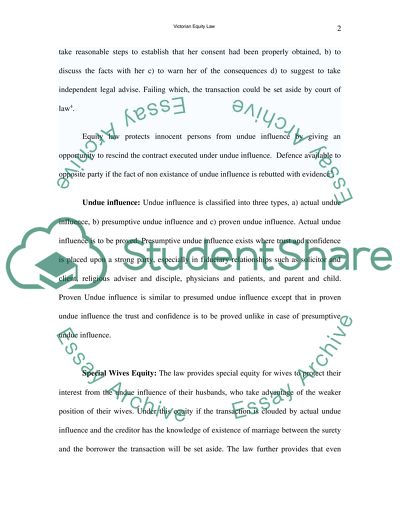Cite this document
(“Victorian Equity Law Essay Example | Topics and Well Written Essays - 2250 words”, n.d.)
Retrieved from https://studentshare.org/miscellaneous/1517268-victorian-equity-law
Retrieved from https://studentshare.org/miscellaneous/1517268-victorian-equity-law
(Victorian Equity Law Essay Example | Topics and Well Written Essays - 2250 Words)
https://studentshare.org/miscellaneous/1517268-victorian-equity-law.
https://studentshare.org/miscellaneous/1517268-victorian-equity-law.
“Victorian Equity Law Essay Example | Topics and Well Written Essays - 2250 Words”, n.d. https://studentshare.org/miscellaneous/1517268-victorian-equity-law.


